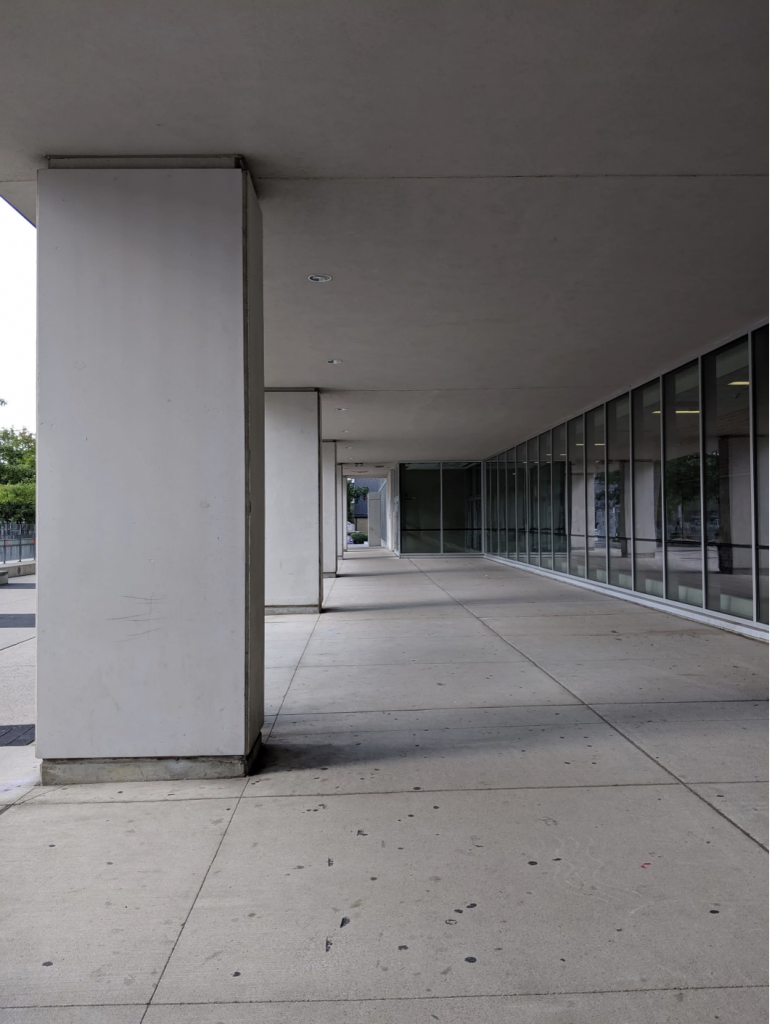Homophobia and Transphobia at NT: still strong and prevalent
Internal
March 19, 2021

Kiara Distin
Editor
At North Toronto, there is a hidden facet of the school that is rarely talked about openly and positively: the LGBTQ+ community. Many members of the community feel as though it is not a normalized part of the school, and hear homophobic comments in the halls, see homophobes and/or transphobes face no repercussions for their words, and feel that they have to hide their identities from their peers out of fear of facing discrimination.
To go along with this, NT’s atmosphere, although not openly and directly homophobic, also does not win the award for “world’s most accepting school,” or even the “TDSB’s most accepting school.” “I think that the surface level is that the LGBTQ+ community is supported, but when you actually go into depth, there’s still quite a bit of homophobia and transphobia,” says Mary Barkas, head of NT G/SA. This sentiment is echoed by an anonymous grade 12 student at NT, who says: “[NT staff and students] say they’re accepting, but I really don’t think they are.” It is no surprise that people feel this way. NT has a G/SA, runs a pride week, and has rainbow posters in almost every classroom. However, the homophobia and transphobia thrown around like a football around the school reveals the challenges still to be confronted. Incidents, such as one student who has had his peers at NT perpetually misgender him on purpose, only prove this further.
The multiple occasions when homophobic and transphobic comments are heard but not acknowledged reflects the lack of consequences for the offenders.“The general social culture in school friend groups is that people will quite often blindly cover or protect their friends, which causes people not to be held accountable. There may be only one or two people who publicly and actively hold homophobic and/or transphobic sentiment, but the reason it feels worse than that is because none of their friends speak out against it. The mob mentality of some students can be really toxic which lets the anti-LGBTQ+ sentiment slide without getting punished,” says one of the anonymous grade 12 students.
The mindset of not calling others out on their inappropriate and uncalled for behaviour can push the offenders and those around them to think it is appropriate to behave that way. If there is no acknowledgement or responsibility taken for homophobic actions, it leads to an environment where it is acceptable to continue.
Most of NT’s population has also heard a casual “that’s so gay” or f-slur thrown around in the halls. “They throw around the f-slur and they throw it around so easily,” says a grade 12 student. Additionally, people also see this behaviour online. “I’ve seen these other people casually using the f-slur on a public story.” says Martina Hipolito. “From misgendering students, to using homophobic/transphobic slurs, mocking the LGBTQ+ community, gaslighting students… there have been several homophobic incidents [commited by NT students on social media].”
All of these aggressions lead to some students being uncomfortable with being themselves at school. A grade 12 student says, “Because of the lack of action and consequence towards students who say homophobic/transphobic things, I feel more comfortable remaining closeted just so that I don’t have to worry about dealing with those things. You really can’t let your guard down about this stuff at NT. Only with your close friends and maybe acquaintances.” This mindset, although necessary for some, is heartbreaking and should not be the one fostered in a school that claims to support everyone no matter what.
The culture that is currently dominant at NT is unacceptable. The general consensus to fix this detrimental culture is that it is most important to have open conversations, educate yourself, join the G/SA, call out homophobic behaviour, report it to teachers or admin, and incorporate LGBTQ+ topics into education.
“I honestly think that it’s important to have open conversations and to listen to one another and learn and be open and not attack,” says Barkas. “The point is to listen to each other, and educate the person, explain to them why that’s homophobic, why it’s derogatory, why it’s offensive, and not throw them off and not attack them as a person, because that’s not the goal. The goal is to educate and expand the knowledge.”
Hipolito says: “Definitely try to educate yourself more on topics you don’t understand. Another way is to join the NT Gender/Sexuality Alliance! While you may not identify as LGBTQ+, you can still join as an ally!”
Along with educating yourself, pushing for LGBTQ+ integration into curriculums is important too. “I feel like incorporating that into our education would be a heck of a lot more helpful.” In grade 9 health class, sexual orientation is touched upon, but is very brief, and often does not provide students with the full education that is necessary to understand and explore LGBTQ+ relationships safely.
As well, do not forget to call out homophobes when you see one. “No matter how you approach that issue – whether it’s educating that student and explaining concepts, reporting to a teacher or guidance counsellor about an incident, or even calling out this behavior on social media-you’re giving yourself and the LGBTQ+ community a hand by putting in an effort to educate people and keep NT a safe space. Even if the person you’re talking to is just plain ignorant, you’re still putting in that effort to make NT safe. Two steps forward, one step back is still one step forward,” says Hipolito. However, please think about your safety first; if you feel that calling people out would put you in danger, then don’t.
Lastly, students should be able to report incidents to staff. Barkas thinks “problems like the issues that arose on ntci.memes and on the G/SA and through Instagram stories, need to be addressed by staff. There’s no doubt. So we’re praying that those get addressed because otherwise that’s just so disappointing.”
NT’s community needs to make multiple improvements to work towards a more accepting and open community for LGBTQ+ people. Educating yourself and others, holding people accountable for their actions, reporting incidents to teachers or admin, and incorporating LGBTQ+ topics into education are the first steps to achieving an open ambience. If NT bands together as a school that cares about others, we can make real progress in how we treat our peers.
